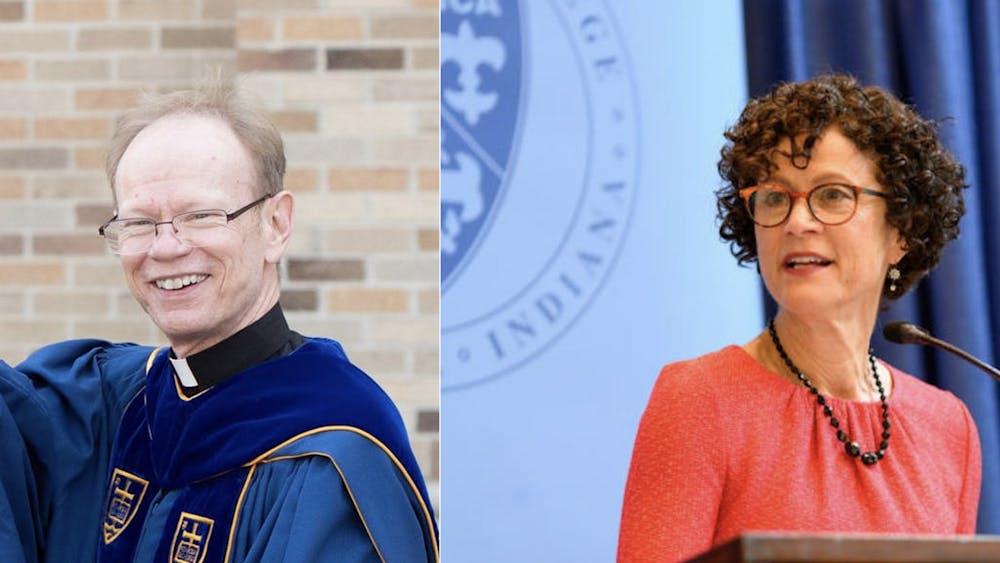Senior biology major Kiley Adams considers her day-to-day activities to be her most valuable memories of this past summer.
But for Adams, who spent the summer researching community-based rehabilitation (CBR) models to increase opportunities for people with disabilities in rural India, those day-to-day activities were far from mundane. They included playing soccer at a Tibetan refugee camp, teaching physical therapists how to swim and “attempting [or] failing to make perfectly round chapathi for lunch.”
“I traveled to the four corners of India, [and] lived, dressed, cooked, danced and worked with locals in pursuit of [research],” Adams said. “Some days, my research project entailed conducting more formal interviews with CBR professionals, such as [those] at Vidya Sagar, an NGO in Chennai for children with disabilities, but, other times, it meant getting devoured by mosquitoes while attempting to stomach bamboo stew to learn firsthand some of the struggles of village life that may prevent people from seeking [disability] services.
“I thought I knew exactly what my Indian adventure was supposed to entail — independent research on the community-based rehabilitation model for peoples with disability in rural India. Little did I know it would also entail an overnight camel safari into the Thar Desert — a little too close to the Pakistan border for my mom’s liking — time spent living with a rural village family and learning their traditional trade of carpet weaving, or literally walking into another country – Myanmar — after playing a game of glorified charades with their military personnel on border patrol. India is an extremely unpredictable country — the power may be cut at any second, you may or may not be able to find reliable water and food and just when you think you have picked up enough of one of India’s 1,652 languages, you travel a few miles away and no one speaks it anymore. The challenges to living in India are as endless as are the rewards.”
The adventure was funded by the Notre Dame Center for Undergraduate Scholarly Engagement (CUSE), which has recently been renamed the Flatley Center for Undergraduate Scholarly Engagement, although its acronym is still the same.
Kati Schuler, administrative coordinator for CUSE, said in an email that 323 grant applications were submitted to the Center for the 2015-2016 academic year. Of those 323 applications, 166 were for summer activities, including, Schuler said, “independent research, creative endeavors, service learning, internships and research assistantships, conference presentations and attendance and immersion and discernment activities, as well as specialty grants."
This past academic year, CUSE awarded 96 grants. 38 of those were allotted for summer activities.
“After each grant deadline, CUSE has a committee review all of the completed applications,” Schuler said. “After the committee members review and score each proposal based on criteria for each grant type, the committee meets as a group to discuss the scores assigned to each proposal and make award decisions. Proposals that receive high scores are awarded grant funds. Because funding is so competitive, students are encouraged to come to CUSE for workshops … and make appointments with CUSE staff [for] individual advising and proposal feedback.”
Schuler said the maximum award amount available from CUSE differs between the academic year and summer. The maximum award during the academic year is $1,500, but the amount increases to $3,000 for the summer period.
“As part of our grant application process, students are required to submit detailed budgets outlining all anticipated expenses, and CUSE works closely with campus partners to facilitate cost-sharing arrangements to provide students with as much financial support as possible,” Schuler said.
Each funding recipient went through a long and strenuous process before submitting their grant proposals.
“The earlier you start planning your project and crafting your proposal, the more likely your proposal will be awarded funding,” Schuler said, “You can schedule a meeting with a member [of] our undergraduate research team to receive individual advising at any stage of the process, from how to start planning a project to proposal feedback for grant and fellowship applications. Developing projects and crafting grant proposals requires various different components, such as securing a faculty mentor, requesting recommendation letters and [Institutional Review Board] approval, all of which are taken into account when reviewing proposals and awarding grants. So start early and use the resources and services available to you.”
Adams said CUSE helped her conduct successful research.
"Their application process ensured that I had not only my research question more fully developed, but also my travel and safety plans," she said. "I have found CUSE nothing but helpful in the grant-writing process, with so many people willing to read drafts of proposals and budgets alike.”
Read More
Trending








